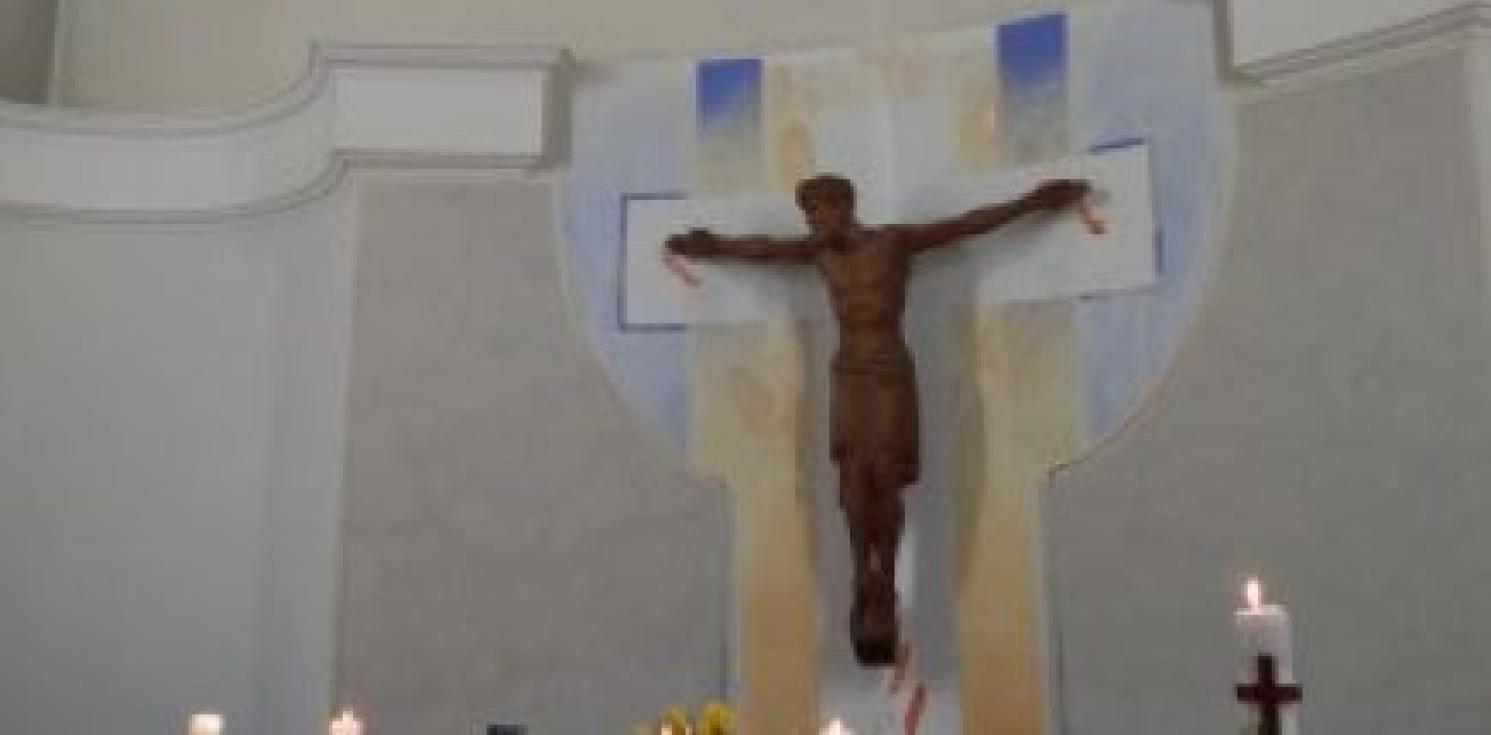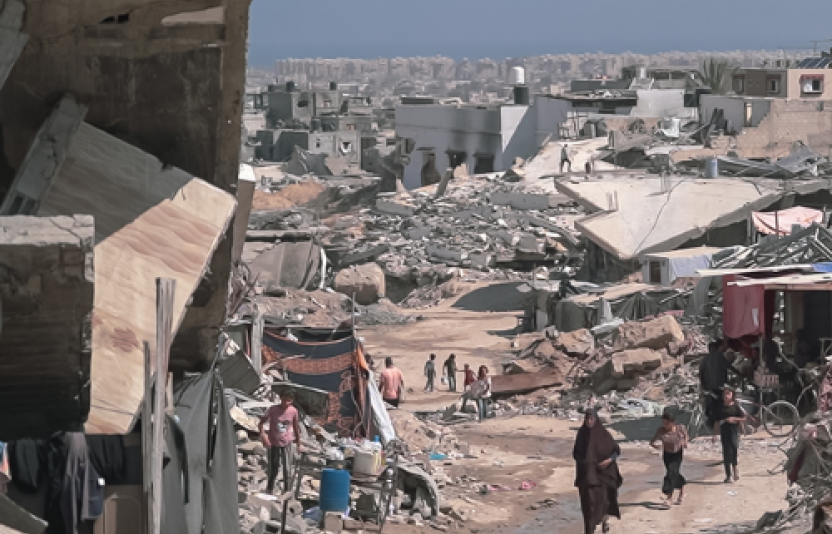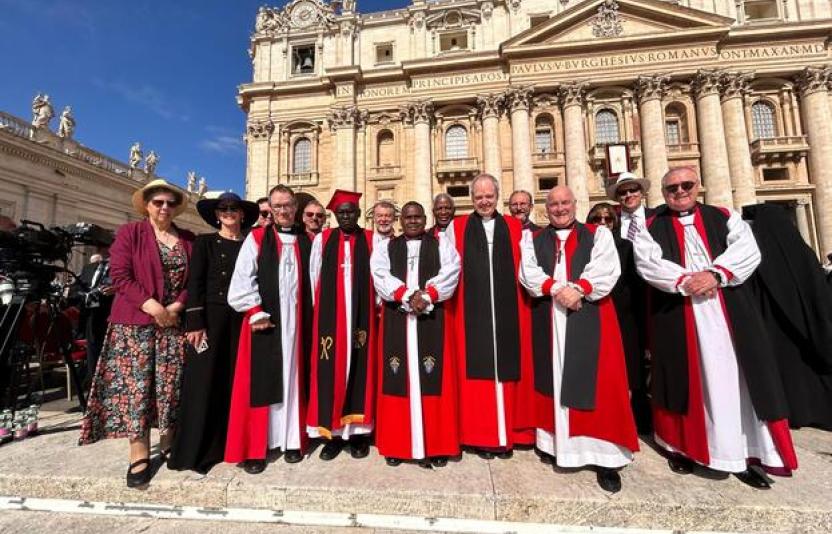Finding hope through the ‘still small voice’ : Lent reflection by Archdeacon Leslie Nathaniel

Archdeacon Leslie reflects on how the still small voice that Elijah heard gives us hope, at a time in Ukraine when it may be hard to find any hope.
“…we can find new strength in discovering that God can and will turn the cry of despair into a prayer of thanksgiving. It is enough for God to provide the daily measure of strength and courage to continue our work of mission and service”
Read the full reflection below:
It is a full year that Ukraine finds itself defending its territory. Since then, open war is waging within its borders with all the unconscionable scenarios of lives lost, of destruction and the fallout for the civilian populations. Neither an end nor a resolution to the conflict is in sight. What many parts of the world found hard to comprehend a year ago and yet responded to with a mostly unified voice of condemnation of the aggression has become a reality that has brought uncertainty and volatility into all, even day to day, aspects of our lives, especially here in Europe. Politically, militarily, economically and socially normal citizens are being challenged to take on board the heavy costs of this war, first and foremost the people of Ukraine, but also the people of Russia and not least our own communities. It has turned into a war of attrition, in far more than the military sense.
Our members in Christ Church Kyiv of up to currently 10 people attend the biweekly prayers and services of the Word. These are both Ukrainians who have stayed on or returned in the city plus some individuals from the foreign communities who work for International Aid Missions in Ukraine. This community aims to stay in Ukraine, pray and give hope to those who are in need of physical, material emotional, and spiritual support during these difficult and uncertain times. We pray with confidence that Christ Church Kyiv will be able to have a resident chaplain as soon as the ground realities allow.
For the people of Ukraine this war is turning into a marathon. It has been anything but a sprint, and they have not been vanquished. They have shown enormous courage and resilience despite the persistent threat to life, air raid alerts, emergency blackouts, disruption of the heating systems, transport and essential supplies.
In times such as these many are more closely drawn to their Creator. The confidence that Christ in their midst will see them through has grown, despite their day-to-day struggles. They are reminded that Jesus came and lived among his people, innocently bore the penalty of death, but rose to new life. It is a promise they hold on to. The need for pastoral care and support is great, not only in our small church community. Enough is enough, is their cry and we feel we cannot countenance what we see coming.
It is enough! is the stinging condemnation that came from His Beatitude Metropolitan Onuphry of Kyiv and All Ukraine: such a war has no excuse, neither from God, nor from humanity.
It is cried out in the voices of Jews and Christians in Ukraine as together they prayed the ancient prayer of Psalm 31.
It was also the message from the Archbishops of Canterbury and York lamenting with the people of Ukraine and praying for the victims of the war. We lend our voices to the lament this Lenten Season.
Where is God’s answer? What does God require of us? Has God retreated from the scene, leaving humankind to its own destructive devices?
One year into the war in Ukraine, I find myself reflecting once more on the text from 1. Kings 19. I was initially pointed to it by a sermon preached by the Chair of the Council of the EKD (Protestant Church in Germany). The prophet Elijah was on the run for his life from the vengeance of Israel’s King Ahab and his wife Jezebel.
Enough is enough, was also on Elijah’s lips and in his heart. He was running to save his life, but also in disgust over his own actions. He had blood on his hands. This was the outcome of his act to prove his God’s supremacy over the Canaanite god Baal. The outcome of his righteous wrath had been for nothing and worse than nothing!
Disillusioned and exhausted Elijah went on a day´s journey into the wilderness – the place for total withdrawal. He came to sit under a broom tree and wanted nothing more than to take his leave of everything: even of his calling as God’s prophet, even of his life. It is enough! He had been convinced that he had done all this for his God.
Our text tells us that God hears, and God does answer even when all seems futile, lost or misguided. And God helps in ways unexpected and surprising. Above all God does not give up on us if we do not abandon our trust in God. Into Elijah’s individual situation of despair God intervenes, but his intervention is unspectacular. We read, an angel nudges him to discover bread and water at his side. They are the most basic elements to sustain his strength and spirits: the first time to ease him into the sleep he so desperately needed, and the second time to strengthen him for the next lap of his journey in God’s mission. These simple, basic elements are enough for Elijah to pick himself up and continue his journey to the Holy Mountain. He must not run away now. He is to live with precisely this self-destructive experience behind him. Now more than ever he must live, though in a new and transformed way. And what is more: He discovers that the little God provides, is indeed enough!
It is in echoing these three words of a battered warrior that we too can look and find signs of hope and courage for the next steps – and be prepared that they may be found where least expected. The cry of despair turns into affirmation of trust. What God provides is indeed enough. We can act as angels - for those who are on the run with food, safe shelter, assistance in a diversity of ways to find their feet in a strange land. God needs hosts of angels.
Within all the questionability and ambiguities about the way ahead in Ukraine, the principle, namely the right and the duty to struggle for freedom and to withstand subjugation, has not changed. Steffen Dobbert, a journalist with a master’s degree in European Studies and winner of the German Reporter Prize in 1917 who has researched extensively in the Ukraine in his book about Understanding Ukraine (Klett-Cotta, 2022) writes in his foreword: “By definition, courage is the readiness, even in
the face of expected disadvantages, to do what one considers to be right. A secret of freedom is courage.” (My translation).
For ourselves, we can find new strength in discovering that God can and will turn the cry of despair into a prayer of thanksgiving. It is enough for God to provide the daily measure of strength and courage to continue our work of mission and service. And God will continue to do so, mostly in unspectacular ways as for Elijah.
For remember, further on in the text when Elijah reached the Holy Mountain, where he expected the awesome presence of God in the fierce wind and the terrifying fire: it was in the still small voice, ‘heard’ in the resounding silence, that he experienced God’s presence. Let us learn to give ear to that still small voice.
As Archdeacon in the Church of England Diocese in Europe with responsibility also for our small congregation in Ukraine, my prayer is one of thankfulness for their fortitude and courage through all the troubles, and continues for their physical safety and spiritual well-being. I pray also for the leaders of our countries, that wisdom to seek a just resolution and the avoidance of escalation may guide them in their decision-making and lead to a free Ukraine and a restoration of peace. We live in the Easter faith and in the assurance of God´s guiding Spirit.


